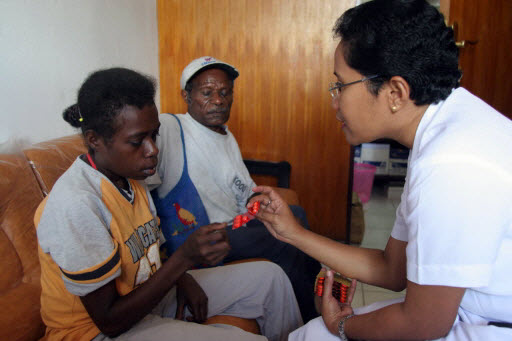
RESPONSE BY THE WORLD HEALTH ORGANIZATION:
The World Health Organization (WHO) welcomes the release of the interim results from the STREAM Stage 1 MDR-TB randomised clinical trial and look forward to the release of the final data and analysis in April 2018.
The STREAM trial – the first randomised controlled trial to test the efficacy, safety and economic impact of a standardised shorter MDR-TB regimen – demonstrates the value and importance of assessing treatment regimens in Phase III clinical trials to fully understand their potential and limitations.
The highly controlled trial environment resulted in excellent retention of patients receiving MDR-TB treatment, both in patients receiving the shorter regimen and those in the control arm on a longer regimen of 20-24 months. This has led to better than expected outcomes from the longer treatment regimen, greatly exceeding outcomes that have been reported to date in most programmatic settings, where treatment adherence and patient loss-to-follow-up are major health service challenges.
The interim results from the STREAM Stage 1 trial highlight the importance of a patient-centred approach to MDR-TB care delivery – according to WHO recommendations – including early diagnosis, use of appropriate regimens, measures to support medication adherence, comprehensive patient support and close treatment monitoring. The experience of trial patients (on both regimens) should be carefully reviewed for lessons learnt in terms of supporting patients through the difficulties of MDR-TB treatment.
In terms of efficacy, the interim results of the STREAM Stage 1 trial show that the shorter and longer regimens were very similar, providing reassurance to the current WHO recommendations on use of the standardised shorter regimen.
In terms of safety, the rates of severe adverse events were similar in the two study arms; however, a higher frequency of cardiac conduction disorders was recorded in the shorter regimen. This highlights the need for close clinical monitoring of patients receiving second-line anti-TB medicines, for which WHO has developed a "Framework for Active TB Drug Safety monitoring and Management" (aDSM).
The initial health economic analyses of the interim STREAM Stage 1 trial results suggest lower health system and patient costs with the shorter regimen, which is an additional important consideration for programmatic implementation.
Further research is required to explore ways to make the shorter regimen even more effective and as safe as possible, in order to maximize its potential. This would also imply further research on optimised drug susceptibility testing in order to allow careful selection of patients to be enrolled on the shorter regimen.
“Scientific data form the premise for WHO public health policy recommendations” said Dr Mario Raviglione, Director of the WHO Global Tuberculosis Programme (GTB). “It is heartening to see the rapid evolution of scientific evidence on MDR-TB treatment over the past 10 years”.
Dr Karin Weyer, GTB Coordinator for Drug resistance, added: “At WHO we are ready to update or refine current policy recommendations on the shorter MDR-TB regimen based on new and quality data, so as to rapidly transfer benefits to people and programmes who struggle with MDR-TB daily. We therefore call on investigators leading current trials and observational studies on MDR-TB treatment to share available data as soon as possible”.
